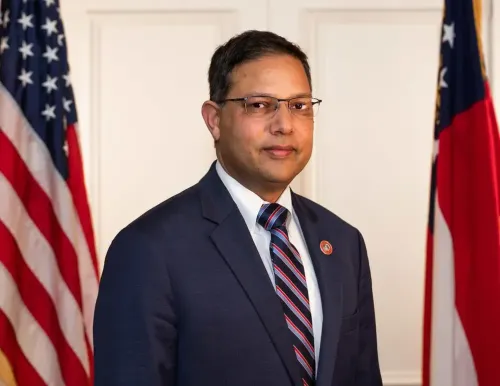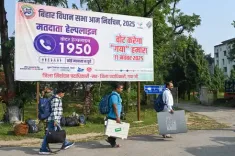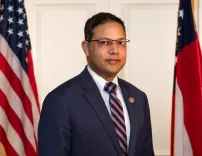Why Did the US Withdraw a Finnish Scholar's Grant?

Synopsis
Key Takeaways
- US withdrawal of funding raises concerns about academic freedom.
- Saara Loukola's research on racism in education is now jeopardized.
- Political influences may be affecting scholarly pursuits.
- Increased applications from US scholars suggest rising concerns about academic independence.
- Broader implications for academic research worldwide are being debated.
Helsinki, May 22 (NationPress) The US Department of State has annulled a Fulbright scholarship given to a Finnish academic, citing a lack of alignment with the political stance of President Donald Trump. This decision has been widely criticized in Finland as a significant violation of academic freedom, according to various media sources.
Saara Loukola, a PhD candidate at the University of Helsinki (HY), was scheduled to visit the US in September to conduct interviews for her dissertation focused on how American teacher education programs tackle racism. She intended to utilize her findings to improve Finnish teacher training.
However, in early May, Loukola was notified by US authorities that the $36,000 grant was revoked and her visa application denied, as reported by Xinhua news agency.
Loukola stated that the US State Department concluded her research subject conflicted with executive orders from Trump.
"I had an uneasy feeling when I learned that applications were being reassessed," Loukola shared with the Finnish News Agency STT. "It wasn’t unexpected, but it still came as a shock."
She expressed that this loss of access has rendered her initial research strategy unfeasible.
Despite this obstacle, Loukola affirmed she would not alter her study to conform to political pressures. "This type of coercion encourages self-censorship, but I refuse to stifle scientific inquiry," she remarked, maintaining her dedication to completing her dissertation in Finland with the backing of her institution.
Ritva Dammert, the development director at HY, indicated that Loukola’s situation is not unique.
Other researchers have also faced political scrutiny over previously approved US funding, she pointed out.
In another recent incident, an American scholar's trip to Finland to investigate climate change was canceled after the withdrawal of US funding, according to the Fulbright Finland Foundation.
"It’s shocking that such incidents occur in a nation where academic and research freedom are constitutionally guaranteed," Dammert stated to STT. "In my opinion, this is an assault on academic freedom."
While Dammert acknowledged that funding bodies have the authority to select what projects they support, she noted that research areas like climate change and gender equality were often cut during the Trump administration—fields that many Finnish and European scholars pursue.
She also revealed that US research funding to HY was temporarily suspended at the onset of Trump’s second term, requiring the institution to provide detailed reports on fund usage in accordance with American political objectives.
According to Dammert, there has been an increase in applications from US scholars to HY, which she interprets as growing apprehension among American researchers regarding domestic encroachments on academic freedom.
These events have reignited discussions about the politicization of science and the fragility of academic freedom under changing political landscapes—a concern that extends beyond the US, as noted by STT.
The Fulbright Program, a US government-funded initiative for international academic exchange, aims to foster mutual understanding through scholarly collaboration.









